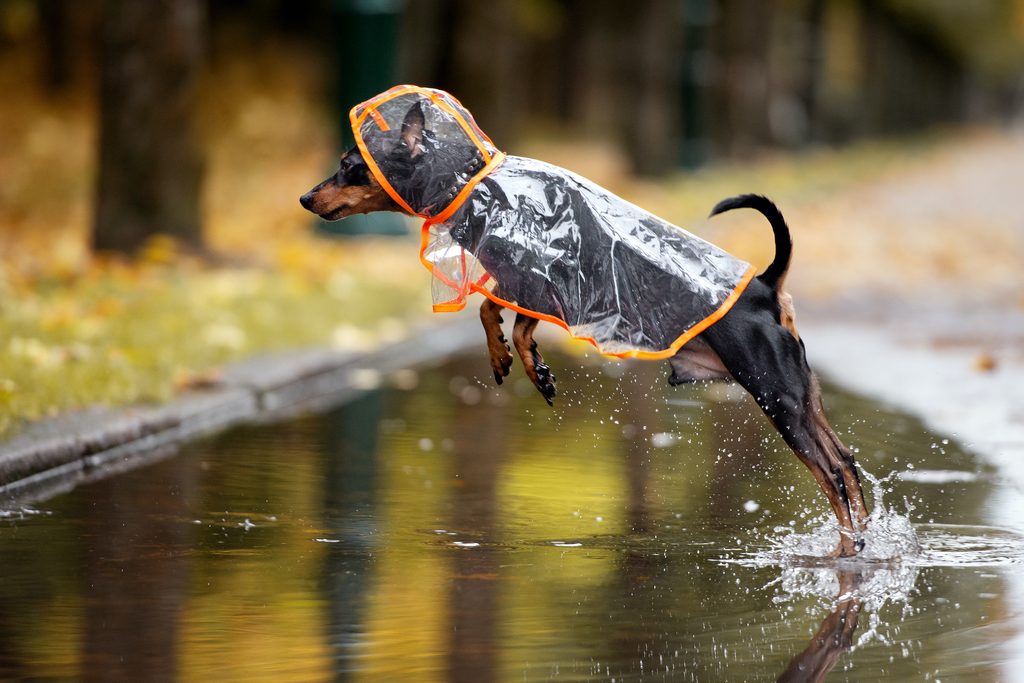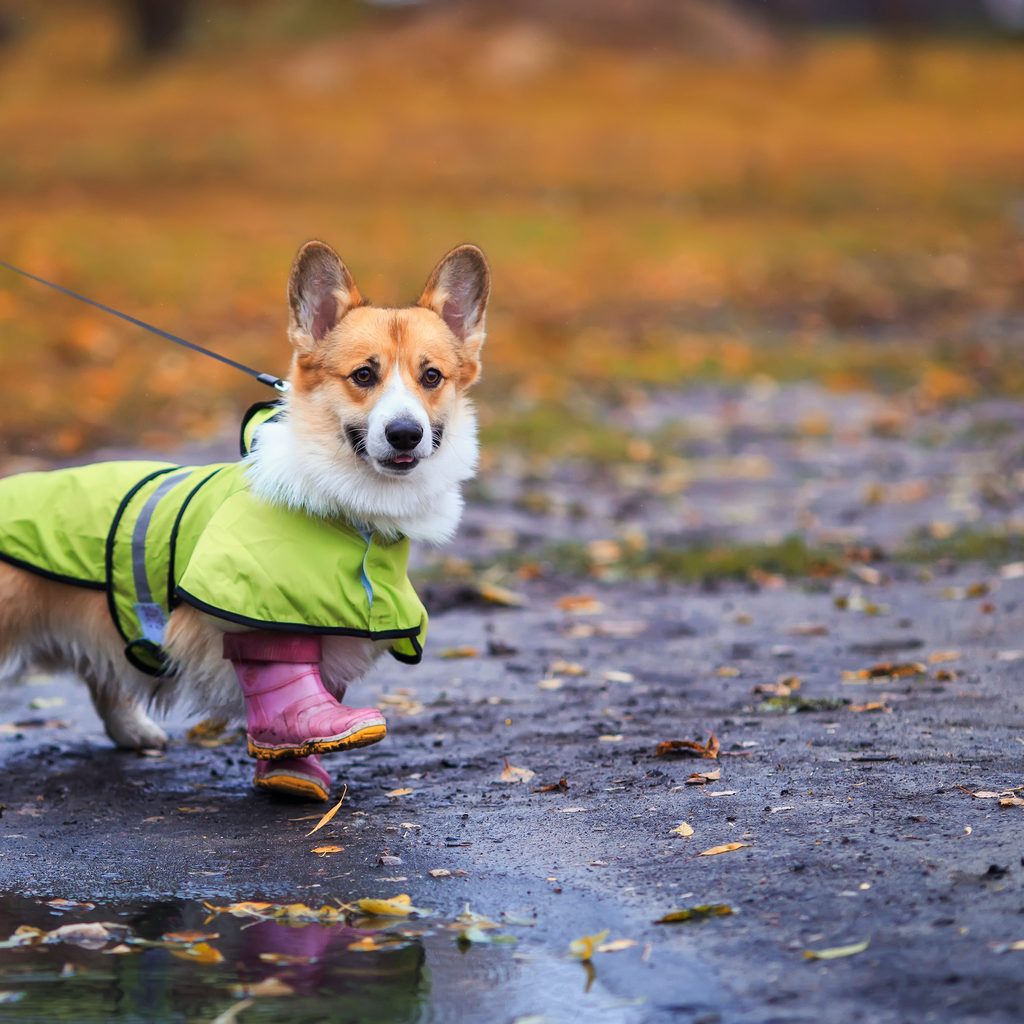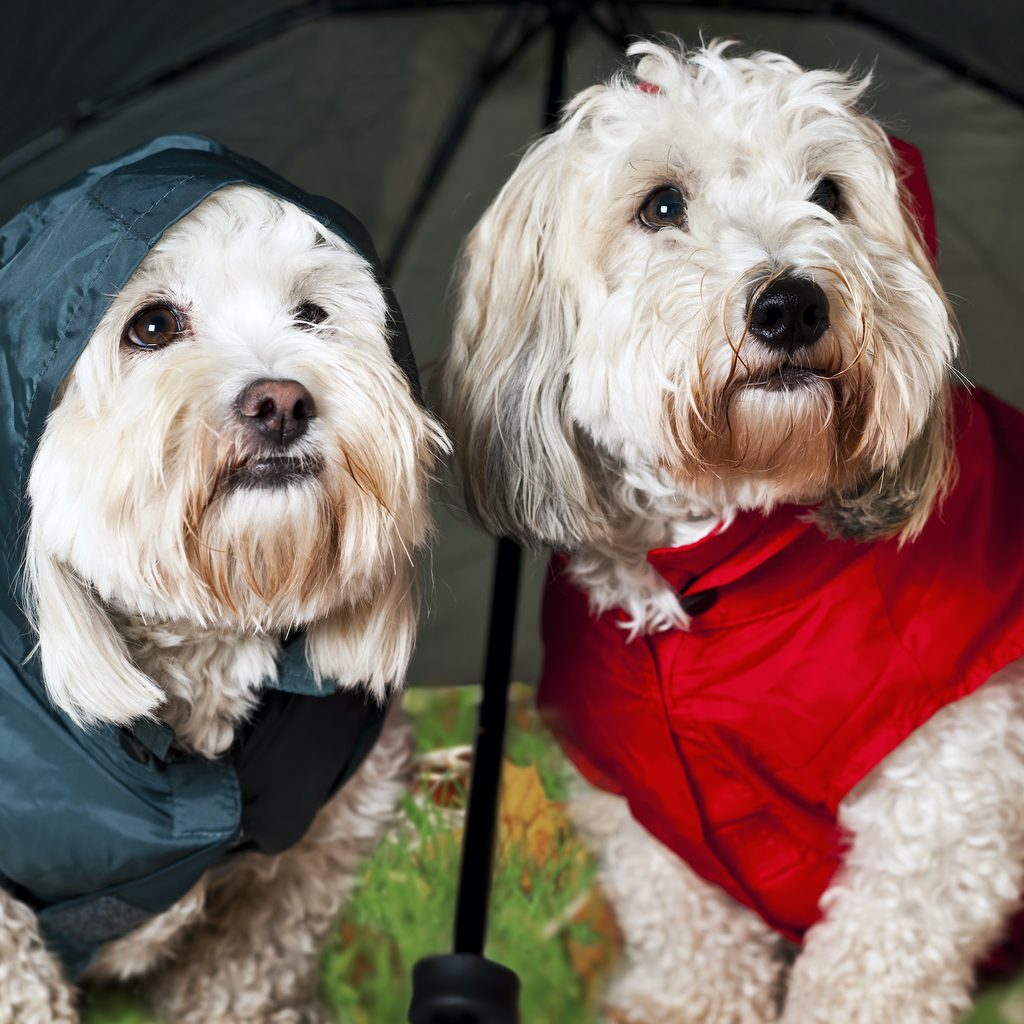Dog rain jackets are more than just adorable — they’re practical, too. Even your most basic raincoat for dogs is more than meets the eye. Besides keeping your pup dry, they can help with warmth, visibility, and even skin and coat health.
Not all dogs need a rain jacket, though, especially if their coat naturally traps warmth and repels water. If your pup tends to not go outside when it rains, or if she finds clothes uncomfortable, it may not be a worthwhile investment.
Those who do benefit from a dog rain jacket will be thrilled with the investment, though, so do give it some thought before deciding one way or another. Here are a few factors to consider before purchasing — or forgoing — a raincoat for dogs.

Your dog’s breed
Since some dog breeds evolved with oily, water-repelling coats, they won’t need a rain jacket. They may still find one to be comfortable — or not — but they will not get any health benefits from a raincoat. These breeds include:
- Golden retriever
- Labrador retriever
- Newfoundland
- Otterhound
- Portuguese water dog
Other breeds are highly likely to need a jacket to help them stay warm and dry, especially smaller ones. Miniature and teacup breeds are especially prone to getting a case of the chills since their tiny bodies can’t generate enough heat on their own. Lean, even muscular breeds can be similarly affected, even if they’re on the larger size. These dogs include the greyhound, whippet, and Weimaraner.
Dogs who are lower to the ground also benefit from a raincoat, though these dogs need a raincoat that covers their chest and stomach as well as their back. Shorter breeds, like corgis and basset hounds, might be close enough to the ground to get their bodies wet while out and about during a rainstorm.

Coat length matters when choosing a rain jacket
Dogs with naturally long coats have a built-in barrier against the cold and rain, whereas short-coated breeds do not. Hairless dogs are especially prone to complications from exposure, so make sure to keep these breeds covered up — as long as they don’t mind, of course:
- Chinese crested
- Chihuahua
- American hairless terrier
- Peruvian Inca orchid
- Basenji
- Bull terrier
And more.
If your dog normally has a longer coat but is currently groomed or shaved much shorter than usual, you should consider getting her a rain jacket. Having less fur makes it easy for rain to reach the skin, causing even more of a chill.

Your dog’s age should also factor into your choice
Even if they are behaving no differently than if they were warm, particularly old or young dogs can be more at risk of being bothered by stormy weather. These pups, as well as dogs who are battling any kind of illness or compromised immune system, are more likely to develop respiratory problems, and even pneumonia, from prolonged exposure to wet weather.
Older dogs may have more trouble with arthritic joints in wet weather, which is just another reason why a warm jacket can help. Keeping your pup comfortable during storms will help her feel more confident when the next one rolls around, too.

Some dogs just don’t like clothes — that’s nothing to worry about
When it comes down to it, every dog has their own opinion about clothes — even helpful pieces like raincoats. Even if your dog checks all the boxes for needing a rain jacket, she just may not like it in the end, and that’s OK. Don’t force your dog to wear clothes that stress her out, as this can do more harm than good when you look at the big picture.
You can always opt for choices other than going out in the rain, like setting up a potty pad indoors. It’s possible to keep bathroom trips on the short side, too, so your dog can relieve herself and stay healthy even if she does get a little wet. Just make sure to have a towel ready when you come back inside.
If your furry friend seems like the type that would benefit from wearing a raincoat for dogs, go ahead and give it a shot. You’ve got plenty of dog raincoat styles to try, so your pup will have options if she’s pickier than the average clothes hound. The worst that can happen is a returned item, so what do you have to lose?




